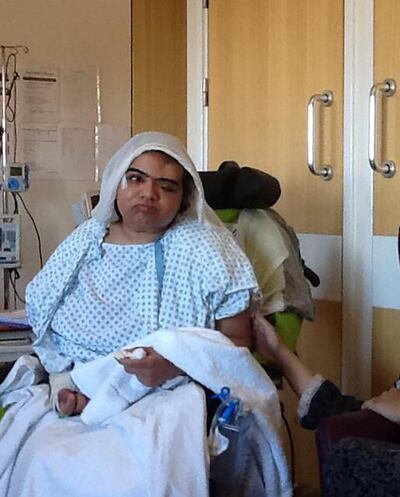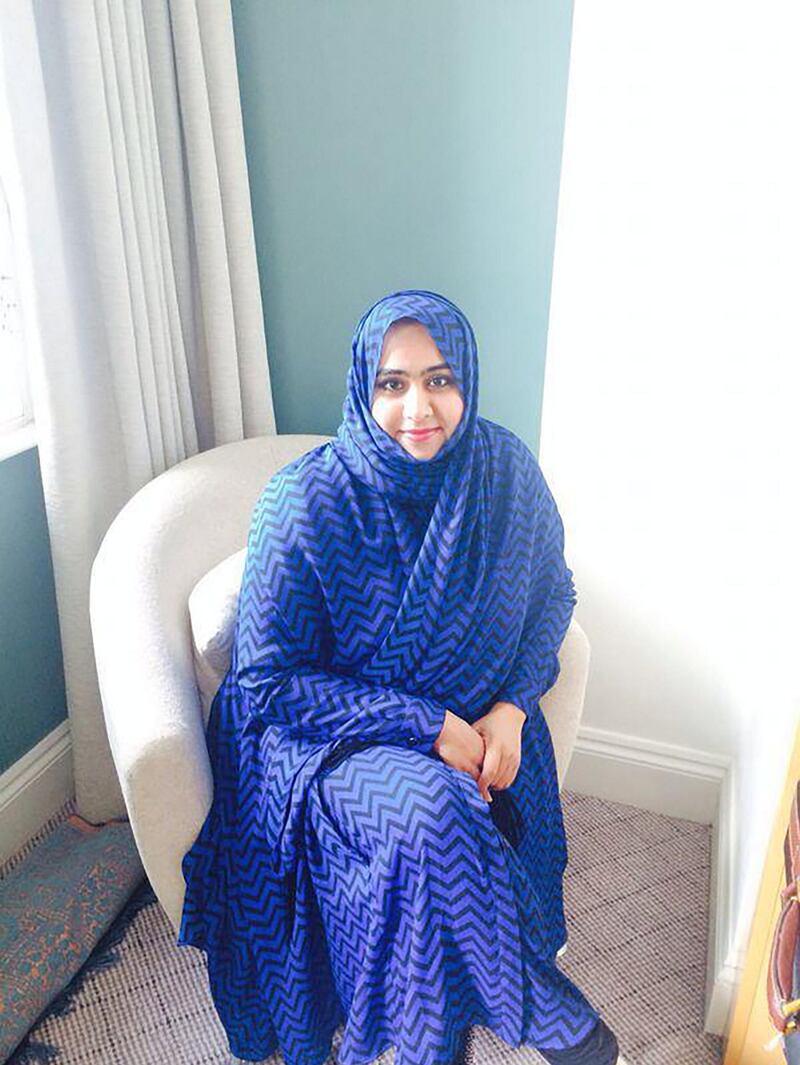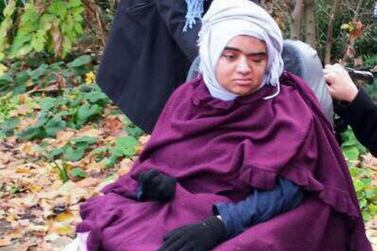Three Emirati sisters who suffered horrific injuries when they were bludgeoned with a claw hammer as they slept are refusing to abandon their fight for justice.
Last month, Fatima, Khulood and Ohoud Al Najjar, who were attacked in a London hotel room in April 2014, lost in their bid to secure compensation from the hotel they were staying at when the attack took place.
Khulood told The National the family was taking the case to the UK's Court of Appeal. Earlier this year, a judge dismissed their claim that the hotel should be held responsible for the incident because it lacked adequate security.
Philip Spence, then 33, was found guilty of three counts of attempted murder after the attack and was given a life sentence.
He was told he would serve at least 27 years before he could be considered for release, although it is unlikely he will ever be set free.
The family launched a separate case against the Cumberland Hotel, which has since been rebranded the Hard Rock Hotel, but lost the case in June.
Papers are set to be lodged this week with the Court of Appeal, which the family hopes it can persuade to reconsider the ruling.
"My jaw just dropped," said Khulood, the oldest sister,, describing her reaction after finding out they had lost the case.
“It was so disappointing. The judge just closed the file, without anything. I can’t explain the feeling – after five years of suffering – to end up with no justice.
“I do believe that the UK has a very strong justice system. That’s why I’m shocked that this decision could come from this judge. I’m confident something will change.”
All three sisters suffered life-changing injuries after Spence, a "hotel creeper" and drug addict, launched his savage attack.
Ohoud has been most affected, losing 95 per cent of her brain function and the ability to communicate.
Khulood's three children, who were either staying in the same room as their mother at the time of the attack or in adjoining bedrooms, have also suffered psychological trauma.
"We went to sleep and when we opened our eyes it was a different life," said Khulood, who had spent two days exploring attractions such as Madame Tussauds, the London Eye and Hyde Park in the UK capital before the attack. "Ohoud was a normal person, a hard worker. She has ended up without a life.
“Yes, she’s alive, but she’s only breathing. She has no quality of life. She lost her eye, she cannot express herself, she’s not talking any more.
"She has become less than a baby, because even a baby, if they want something, they will start crying. But in Ohoud’s case, nothing.”
Fatima cannot taste or smell and has problems with her memory. Khulood has had 20 operations, the most recent in April.
In a sign of her psychological scars, she said she woke up from her anaesthetic to a flashback. Fatima is in her late 30s while Ohoud and Khulood are in their early 40s.

“We are trying to live our lives but it is not something you can forget,” Khulood said. “When I am sleeping, still I can hear his [Spence’s] steps next to me. I’m still having nightmares and flashbacks.
“I got the last flashback when I opened my eyes in the [recovery] theatre. I didn’t remember, but my surgeon said I was screaming and hiding my eye, saying ‘take him away from me’.”
In the hotel case, the sisters argued that Spence should not have been able to reach their seventh-floor room unchallenged. He entered their room, which was unlocked, and began stealing valuables, unleashing his hammer attack after he was disturbed.
Meanwhile, the hotel's owners denied liability, arguing that by leaving their room door open the women "voluntarily assumed the obvious risk of allowing anyone to enter the room while they were asleep inside".
Justice Dingemans sided with the hotel, owned by Malaysian company GLH Hotels, saying that although the attack was foreseeable, the likelihood of such a violent attack occurring was “very low”.
The family, who were told by legal experts that they had a strong case, were left shocked and angry by the verdict but have vowed to continue to fight on until the legal process is exhausted.
“The judge was saying that Ohoud was guilty, because she said to my youngest sister to leave the door open because she couldn’t find the [key] card.
“Why did we choose a luxury hotel? If we have to close the door and put everything away we don’t need to pay a lot of money, we can go to a one-star hotel. I don’t understand why he would give a decision like this."
Five years on from the attack, the family now faces a further wait for closure. They have been told to expect to wait six to eight months to find out whether the Court of Appeal will agree to consider the case.
“If the judge had said we are partially responsible and they [the hotel] are partially responsible, it would be acceptable for me," Khulood said.
"But even that, he didn’t do. He cleared their side and said they had a working and active security system, but if that was true they would not have ended up with three attempted murders.
“I will try, and keep trying, to achieve justice. We are not there for a [financial] settlement. We are there for something much for important.
“Nothing will replace what Ohoud lost. But I will try to give my sister justice, which she deserves. If they were found guilty, it would feel like something cooling in my heart.”
GLH Hotels did not respond when contacted for comment.







